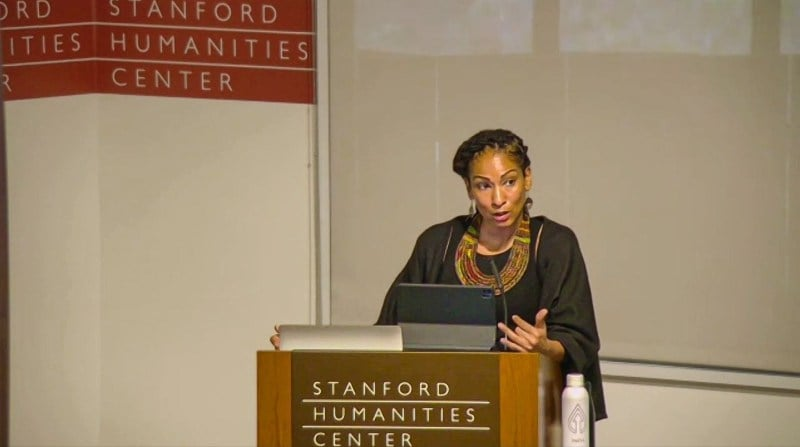Sci-fi books have the remarkable ability to transport us to unimaginable worlds and challenge our perceptions of reality. As the lines between humanity and AI blur, works of science fiction often offer profound insights into the complexities of technology, society, and our future. With themes ranging from censorship in literature to the ethical implications of artificial intelligence, these narratives compel us to reflect on our existence and the paths we choose. Whether you’re seeking the best sci-fi novels that push the boundaries of imagination or simply looking for science fiction recommendations that are thought-provoking and timely, there’s no shortage of compelling stories to explore. Delve into these captivating tales that not only entertain but also serve as cautionary reflections on our rapidly evolving world.
Genre literature, especially in the realm of speculative storytelling, holds a mirror up to our societal constructs and existential dilemmas. In an era marked by advancements in technology and artificial intelligence, the impact of literature expands beyond mere entertainment into realms of ethical and philosophical debate. Whether exploring the nuances of AI in literature or confronting themes of censorship through gripping narratives, these narratives encourage readers to question the status quo. As we engage with futuristic scenarios and imaginative plots, we gain opportunities for introspection regarding what it means to be human in an increasingly automated world. This rich tapestry of themes serves as an invitation for readers to ponder the profound questions that lie at the intersection of humanity and technology in modern storytelling.
The Importance of Sci-Fi Books in Understanding AI
Science fiction books serve as a crucial lens through which we can examine the complex relationship between humanity and artificial intelligence (AI). Through imaginative storytelling, authors like Peter Watts and Stanislaw Lem explore the implications of creating intelligent machines and the moral dilemmas that arise. 「Blindsight」 challenges readers to consider whether consciousness is an evolutionary bonus or a hindrance, while 「Solaris」 portrays the limits of human understanding when faced with truly alien intelligence. These narratives compel us to think critically about our creations and their potential impact on society.
Moreover, these sci-fi books spark discussions that resonate beyond the realm of fiction. They mirror contemporary debates about AI, providing insight into our fears and hopes surrounding technological advancement. With AI increasingly embedded in aspects of daily life, works like 「Fahrenheit 451」 remind us of the historical tensions between knowledge control and individual freedom. Engaging with these stories encourages readers to reflect on the ethical ramifications of AI in literature and everyday life, making sci-fi a vital genre for anyone contemplating the future.
Censorship in Science Fiction Literature
Censorship serves as a recurring theme in science fiction literature, highlighting the tension between creativity and societal control. Authors such as Han Song have faced challenges in their careers due to governmental censorship. In her recommendation of「Exorcism」, Ursula Friedman reveals how the narrative unfolds amidst a dystopian environment wherein critical voices are silenced. This illustrates the importance of freedom of expression in literature, emphasizing that science fiction can serve as a means of confrontation against oppressive regimes through storytelling.
Furthermore, recognizing censorship in literature encourages readers to think critically about the information they consume. Ray Bradbury’s 「Fahrenheit 451」 showcases a world stripped of books, pushing readers to reflect on the fragility of knowledge in the face of distraction and superficial entertainment. The theme of censorship in sci-fi is not merely about what is forbidden; it probes the implications of what replaces those narratives. By engaging with these themes, readers can better appreciate the importance of maintaining diverse voices and ideas in literature as a pillar of intellectual freedom.
AI’s Impact on Humanity in Literature
The exploration of AI’s impact on humanity is a central theme in many groundbreaking science fiction novels. Books like「A Rover’s Story」 allow readers to engage with the emotional journeys of both human and machine characters. The story presents an intriguing dialogue about what it means to be human in the age of advanced technology. Through the character of Res, the Mars rover, author Jasmine Warga invites crucial reflections about emotional connections and the potential for machines to understand or mimic human experiences.
As AI continues to evolve, literary narratives must grapple with the evolving definitions of friendship and emotional intimacy. Sci-fi literature prompts us to address profound questions about identity and relationships. It serves both as a cautionary tale and a source of inspiration, allowing readers to envision futures where the intersection of humanity and AI leads to new forms of understanding and connection. These explorations in literature not only expand our imagination but also play a significant role in shaping public discourse around technology and its implications.
Recommendations from Faculty on Must-Read Sci-Fi Novels
Several notable faculty members have shared their recommendations for must-read sci-fi novels that delve into the intricacies of AI, society, and human experience. Karen Brennan’s choice of「Blindsight」 emphasizes the provocative nature of consciousness in our encounters with artificial intelligence. This novel serves as a riveting exploration of the nature of self-awareness, focusing on the critical questions surrounding machine capabilities compared to human intelligence.
Similarly, Theo Anthony’s selection of「Solaris」 explores the complexities of communication and understanding between different forms of intelligence. This narrative resonates with the contemporary challenges we face in interpreting AI behaviors and emotions. Each recommendation offers a unique perspective on scientific and technological advancements, and together they represent a rich tapestry of storytelling that stimulates intellectual curiosity and critical thinking.
Cultural Reflections in Sci-Fi Narratives
Science fiction provides a profound cultural commentary that reflects societal anxieties and aspirations about technology. Works such as「Fahrenheit 451」 serve as cautionary tales about our relationship with media, technology, and knowledge. The culture of distraction depicted by Bradbury forces readers to consider the consequences of prioritizing entertainment over deeper engagement with literature and critical thinking. This reflection is particularly poignant in our current digital age where technology can shape perceptions and beliefs.
Moreover, Han Song’s work, which has faced censorship challenges, emphasizes the consequences of oppressive systems on cultural expression. The narrative intricacies in novels like「Exorcism」 depict not only individual struggles but also highlight the broader implications for society at large. Through dystopian settings, these narratives invite readers to examine the complex interplay between technology, power, and cultural identity, supporting the idea that literature has the capacity to evoke change and inspire dialogue.
Diverse Perspectives in Sci-Fi Literature
The realm of science fiction literature has seen a diverse array of voices and perspectives that enrich the genre. Faculty members have highlighted works not only from Western authors but also from international creators, emphasizing the importance of global narratives in exploring themes of AI, technology, and the human condition. The insights from writers like Han Song and Jasmine Warga expand our understanding of how different cultures perceive the relationship between humans and machines.
By embracing diverse narratives, readers are encouraged to engage with unique viewpoints that challenge conventional thoughts on intelligence and emotion. These varied perspectives not only enhance the reading experience but also promote empathy and understanding in a world that is increasingly interconnected. Exploring global science fiction literature broadens our horizons and informs our discussions on the ethical implications of AI and technology in our lives.
Lessons from Classic Sci-Fi Novels
Classic science fiction novels have imparted timeless lessons on technology, society, and the human experience that remain relevant today. The prophetic warnings in Bradbury’s「Fahrenheit 451」 about censorship and its repercussions resonate strongly in the current technological landscape, where information is shaped and filtered by powerful algorithms. This highlights the critical role literature plays in advocating for intellectual freedom and protecting diverse voices.
In addition to providing entertainment, these classics prompt vital discussions about humanity’s future. They compel readers to evaluate the ethical dilemmas associated with technological advancement and inspire creative thinking about possible outcomes. By revisiting these foundational works, we gain insights that remain applicable to contemporary challenges with AI and digital media, reinforcing the notion that science fiction is not just fantasy but a crucial medium for understanding potential realities.
The Evolution of Technology in Sci-Fi
The evolution of technology serves as a central theme in many science fiction narratives, illustrating both the promises and pitfalls of innovation. Books like「Blindsight」 and「A Rover’s Story」 highlight a spectrum of technological advancements ranging from AI capabilities to robotics. These narratives not only speculate on the future of technology but also critically examine the social implications of such developments, encouraging readers to think about how advancements can reshape humanity.
As technology continues to shape our experiences, these sci-fi stories invite necessary reflections on our responsibility towards the tools we create. They urge us to consider not only what technology can achieve but also the ethical dimensions that accompany such power. This ongoing dialogue in science fiction cultivates a framework for understanding the broader impact of technology on society, emphasizing the need for responsible innovation in conjunction with human values.
The Role of Emotion in AI and Literature
Exploring the role of emotion in narratives involving artificial intelligence reveals deeper truths about human relationships. In works like「A Rover’s Story」, the connection between humans and AI serves as a springboard for discussions about emotional intelligence and companionship. By examining how characters relate to a machine imbued with human-like qualities, readers are invited to reflect on their own emotional landscapes and the complexity of companionship in an increasingly technological world.
Moreover, these explorations extend beyond mere companionship; they challenge us to redefine our understanding of what it means to connect emotionally. As AI systems become more integrated into our lives, literature provides a unique venue for contemplating the nuances of emotion, empathy, and the ever-blurring lines between human and machine relationships. These themes prepare readers to navigate the emotional implications of an AI-infused future.
Frequently Asked Questions
What are some recommended science fiction books that explore AI in literature?
For thought-provoking science fiction recommendations that delve into AI in literature, consider ‘Blindsight’ by Peter Watts. This novel challenges our understanding of consciousness and the potential limitations of human intelligence in the face of superior AI. Another noteworthy read is ‘A Rover’s Story’ by Jasmine Warga, which reflects on the emotional connections humans form with machines as AI evolves.
How does ‘Fahrenheit 451’ address themes of censorship in books?
‘Fahrenheit 451’ by Ray Bradbury serves as a powerful commentary on censorship in books and the dangers of information control. The novel depicts a society where books are outlawed, emphasizing the consequences of a culture that prioritizes passive consumption over critical thinking. This theme resonates today in the context of algorithm-driven content curation in AI.
What are the best sci-fi novels that explore humanity and AI relationships?
Some of the best sci-fi novels exploring humanity and AI relationships include ‘Solaris’ by Stanislaw Lem, which examines the limits of understanding when encountering alien intelligence, and ‘Exorcism’ by Han Song, where the interplay between AI and human beings is central in a dystopian setting. Both novels provoke deep reflection on what it means to be human in an age of advanced technology.
Which science fiction recommendations challenge our perceptions of intelligence?
‘Blindsight’ by Peter Watts is a must-read among science fiction recommendations that challenge perceptions of intelligence. It portrays a crew encountering a superior alien intelligence that lacks what we consider consciousness. This narrative compels readers to rethink the nature of intelligence profoundly.
How does ‘A Rover’s Story’ tackle the theme of machines as friends in sci-fi literature?
In ‘A Rover’s Story’ by Jasmine Warga, the narrative engages with the theme of machines as friends by detailing the emotional bond between a Mars rover and its human operator. This middle-grade novel highlights the capacity for connection, prompting discussions about how AI could serve as emotional support, yet ultimately reminds us of the irreplaceable value of human relationships.
| Author/Contributor | Book Title | Key Themes |
|---|---|---|
| Karen Brennan | Blindsight – Peter Watts | Challenges perceptions of consciousness and AI, exploring the implications of intelligence that differs from human experience. |
| Theo Anthony | Solaris – Stanislaw Lem | Explores encounters with alien intelligence and the limits of human understanding; promotes humility in the face of the unknown. |
| Amy Deschenes | A Rover’s Story – Jasmine Warga | Considers the emotional connections between humans and robots, prompting reflection on human nature amid advancing AI. |
| Ursula Friedman | Exorcism – Han Song | Addresses censorship in literature, exploring themes of disaster, narrative, and reality manipulation within social and political contexts. |
| Jeff Saviano | Fahrenheit 451 – Ray Bradbury | Cautions against censorship and the impact of technology on critical thinking, advocating for intellectual freedom in an AI-driven world. |
Summary
Sci-fi books have a unique way of reflecting our society’s anxieties and aspirations, often serving as a mirror to our current dilemmas and potential futures. The works recommended by Harvard’s faculty highlight essential topics such as artificial intelligence, censorship, and the nature of human connection. From Peter Watts’ unsettling exploration in ‘Blindsight’ to Bradbury’s stark warnings in ‘Fahrenheit 451’, these stories provoke critical thinking and discussion about our relationship with technology and information. Engaging with these sci-fi books not only entertains but also encourages us to ponder our role in a rapidly changing world.



